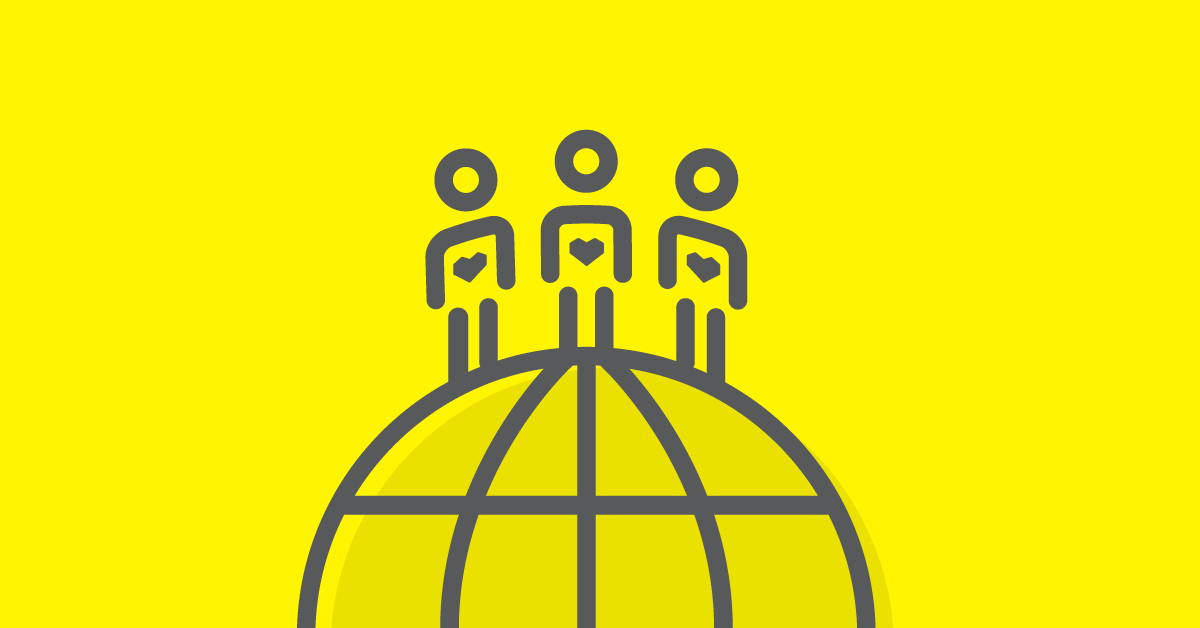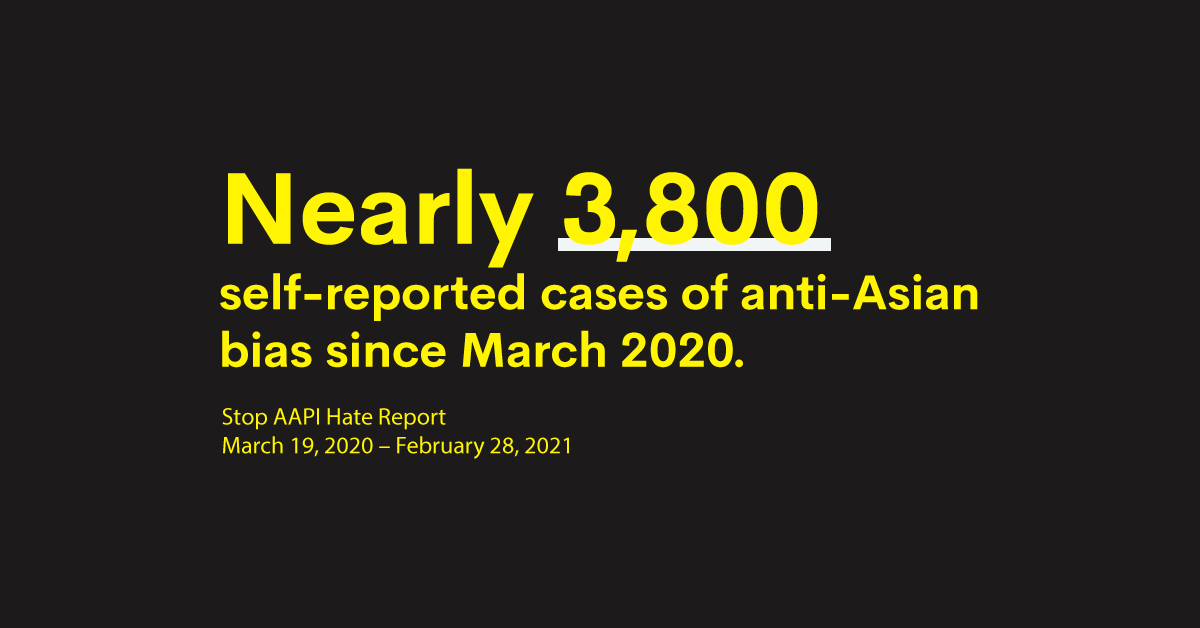Social Impact
Supporting the Asian American and Pacific Islander Community
|

Social Impact
Supporting the Asian American and Pacific Islander Community|

Beehive stands up for justice and equity in our communities; for safe, diverse, equitable, inclusive and anti-racist business cultures; and for dismantling racist systems, policies, practices and ideologies. We stand up for Black, Indigenous and People of Color (BIPOC), including the Asian American and Pacific Islander (AAPI) community.
We are heartbroken and angry about the shootings in Atlanta on March 16 that killed eight people, six of whom were Asian. We stand in solidarity with the Asian American and Pacific Islander community in condemning this as a hate crime and commit to taking action to support the AAPI community.
Racism and violence is increasing
Anti-Asian racism has a long and often invisible history in the U.S. Since the start of the COVID-19 pandemic last spring, however, racist attacks, violence, harassment and discrimination against Asian Americans has spiked significantly due to the mischaracterization of the coronavirus as the “China” virus. The Stop AAPI Hate reporting center has documented nearly 3,800 self-reported cases of anti-Asian bias since March 2020, including 42 in our home state of Minnesota. This must end. It will take individuals, communities, organizations and businesses working together to make substantive change.

Words matter
Racism and white supremacy are evident in the reporting of the killings in Atlanta. Instead of centering the victims, much of reporting by local law enforcement and media outlets has empathized with the white male perpetrator, who was described by law enforcement as “having a bad day” and taken peacefully into police custody. Descriptions of the perpetrator largely emphasize qualities that support his innocence and seek to reduce his accountability. This must be called out and addressed, including holding media outlets accountable for not following the AAJA guidance on how to cover the Atlanta shootings. Anti-Racism Daily recommends unfollowing media platforms that share more about the perpetrator than the well-being of the community harmed. Companies and organizations, as well, must remember the power of words when communicating internally and externally around issues related to racism and social justice.
Show solidarity and support
Organizations, businesses and institutions should consider making public statements calling for racial justice, solidarity and respect, in alignment with their organizational values, mission and purpose. They can also show support by signing the petition in solidarity with Asian Americans Advancing Justice Atlanta, which is dedicated to the civil rights of the Asian American community. Beehive has signed on as an organization to demonstrate our support.
Take action
Statements of solidarity and support for the AAPI community are important, but they are only the start. Putting actions behind the statement is a critical way to avoid performative allyship, virtue signaling and empty sentiment. For example:
- Learn more about the Asian American experience in the United States
- Seek to better understand Asian American stereotypes as the model minority and how that harms the AAPI community
- Conduct employee education and training on issues related to racism, unconscious bias and white privilege
- Host listening sessions with employee groups
- Create Employee Resource Groups
- Conduct intervention training
- Make a financial donation
Understand historical context
Being an active ally and better understanding anti-Asian racism means educating yourself on the historic impact of Asian Americans in the United States and anti-Asian discrimination. Because Asians are typically stereotyped as the “model minority,” their racial trauma is often hidden or ignored. It also prioritizes the narrative that Asian Americans aren’t struggling and that they face less racial discrimination that other people of color, which is untrue and harmful to the AAPI community. Learn more about the model minority myth:
- The Mental Health Toll of Being a Model Minority in 2020
- Model Minority Myth Again Used as a Racial Wedge Between Asians and Blacks
- The model minority myth says all Asians are successful. Why that’s dangerous.
Our team will be engaging with this topic for our next Book Club & Learning series.
Support employees as an organization
When a significant racially charged incident occurs in our community, our state or our country, even if it doesn’t seem to directly or personally impact your employees, the tragedy does impact them emotionally and can trigger past trauma, especially for BIPOC and AAPI employees who might identify with the person or group of people who was harmed.
As the lines between home and work and professional and personal lives blend due to working from home, employees are bringing more of their whole selves to work. They are less likely to compartmentalize their emotions while working and more likely to follow local and national tragedies in real-time on mobile devices and computers throughout the day. Employers must be aware of the extent to which employees are concerned and take action to support mental and emotional well-being.
Employee’s expectations are rising. They want to work for and buy from organizations that believe what they believe – and act accordingly. Employees expect their organizations to live the stated values. Reach out to your internal stakeholders after a tragedy occurs to demonstrate compassion, support and solidarity. Let them know what resources are available to them and what the organization will do to take action. Consider hosting listening groups with BIPOC and AAPI employees, activating support through HR and Employee Resource Groups and re-committing to anti-racism efforts in your organization and community. Beehive uses its daily team huddles each morning as a forum for these issues and discussions.
Support employees as co-workers
Be mindful of putting an emotional burden on your BIPOC and AAPI employees by asking them open-ended questions like “how are you feeling?” This may be appropriate based on your relationship with your co-worker, but it may not be. An alternative is to acknowledge the pain of the situation and offer to actively help by offering to cover a meeting for them, extending a deadline or helping with a project with a tight deadline. Demonstrate compassion and kindness.
Speak up
Anyone who experiences or witnesses an anti-Asian hate crime should consider reporting it to Stop AAPI Hate to more effectively address anti-Asian violence. Asian Americans can also share their stories and find community through the Asian Americans Advancing Justice site. For those who want to be better allies, consider receiving training from organizations like Hollaback on how to intervene in order to stop Anti-Asian American harassment and xenophobia when you witness it.
Make a financial donation
Individuals and organizations can activate their support financially by donating directly to support the victims and their families and to support crisis interventions, created by Asian Americans Advancing Justice Atlanta. New York Magazine also shares 61 Ways to Donate in Support of Asian Communities. Other organizations to consider include:
- Stop AAPI Hate
- Asian American Legal Defense and Education Fund
- Asian American Health Collective
- AAPI Progressive Action
Beehive has made a financial donation to Stop AAI Hate.
Learn more
- Review this full list of resources that is being crowd-sourced for the people to educate themselves and others about how to act, donate and more.
- Read and learn. Here are five books to educate yourself on Anti-Asian racism in America.
- Read this TIME magazine article on how the Atlanta shootings fit into a long legacy of Anti-Asian violence in America, dating back to the first Chinese immigrants entering the country in the 1850s, to the Chinese Exclusion Act of 1882, to Japanese internment camps to the 1982 murder of Vincent Chin who was beaten to death in Detroit.
- Explore the PBS NewsHour series on the long history of racism against Asian Americans in the U.S. along with the PBS Asian American series.
